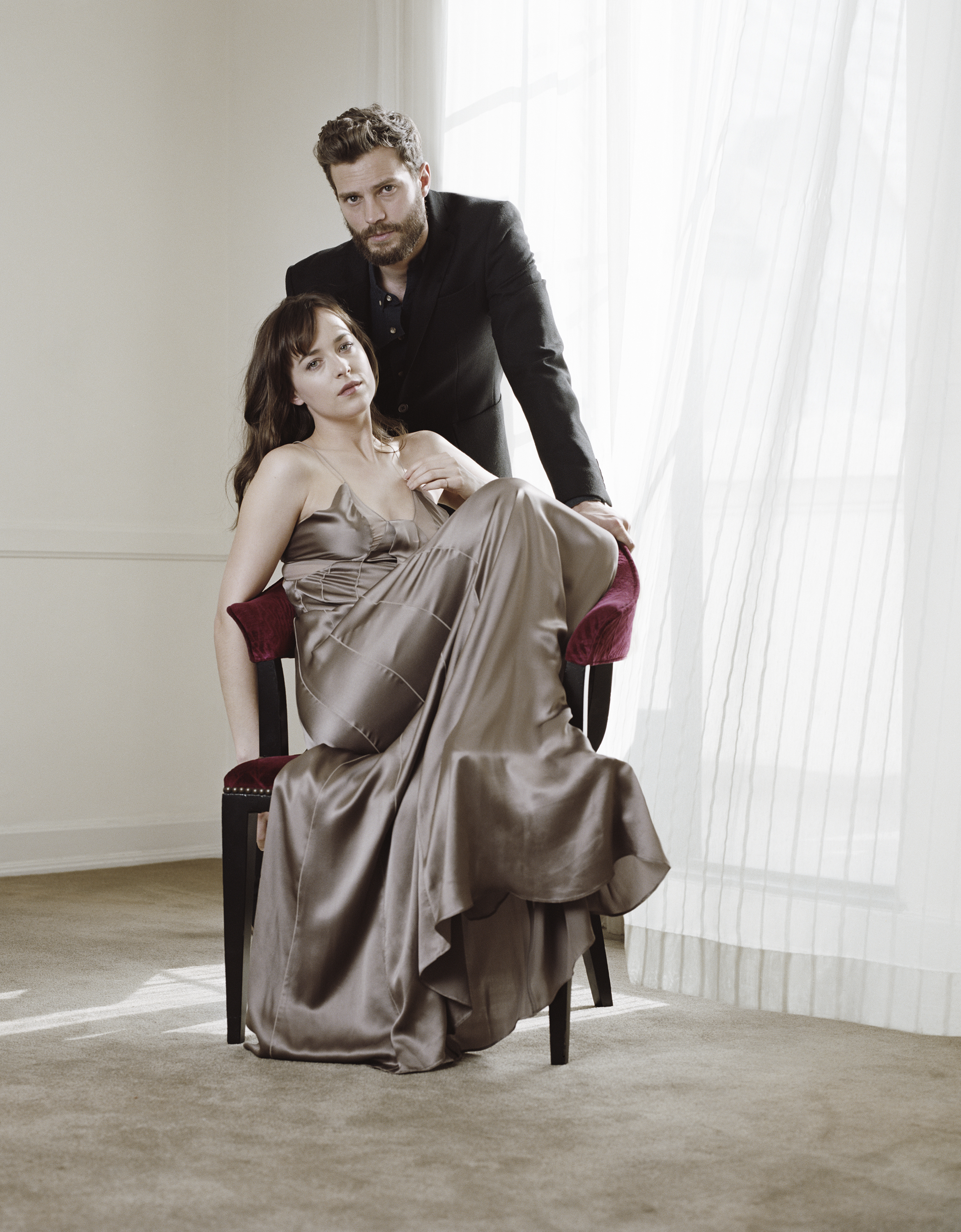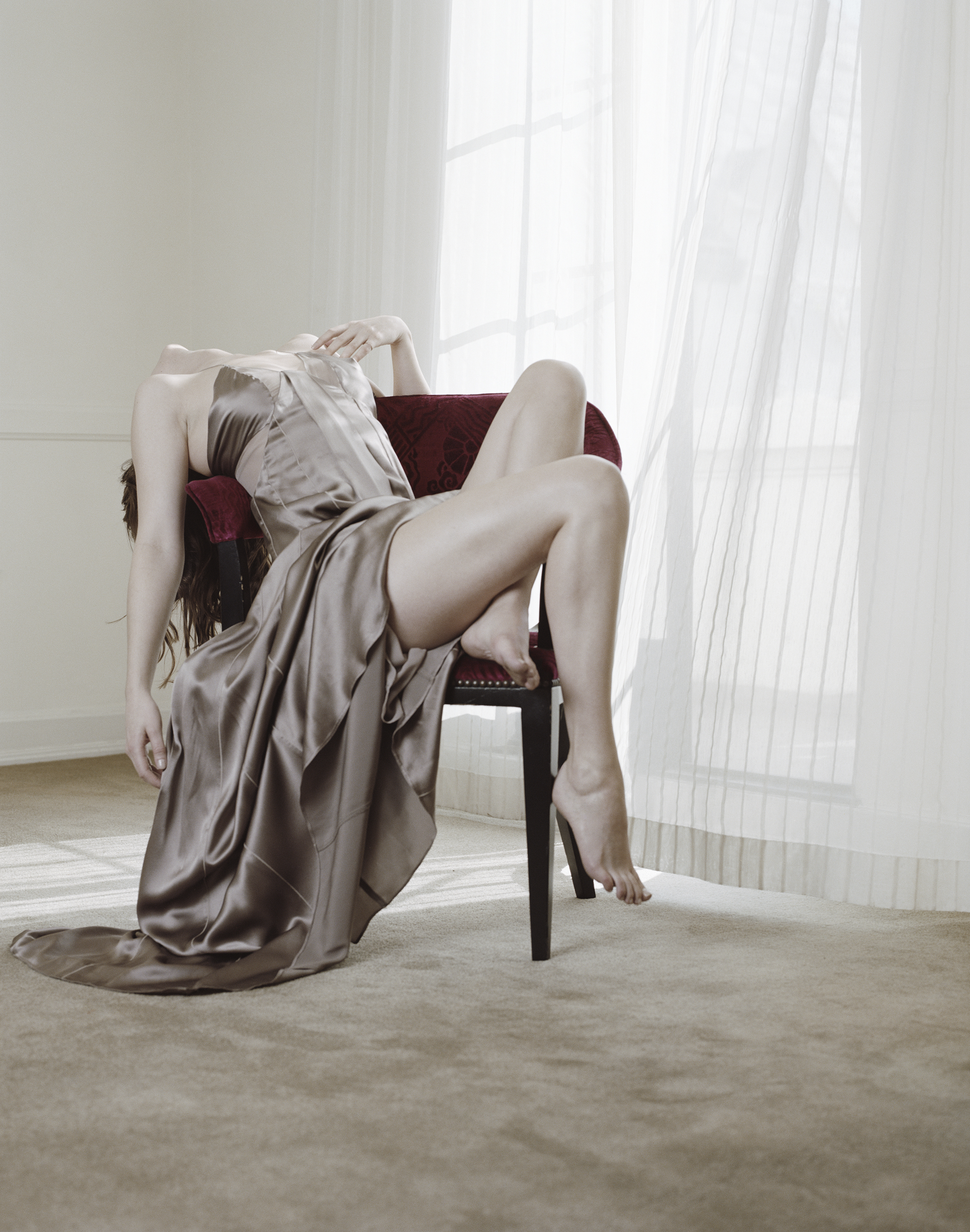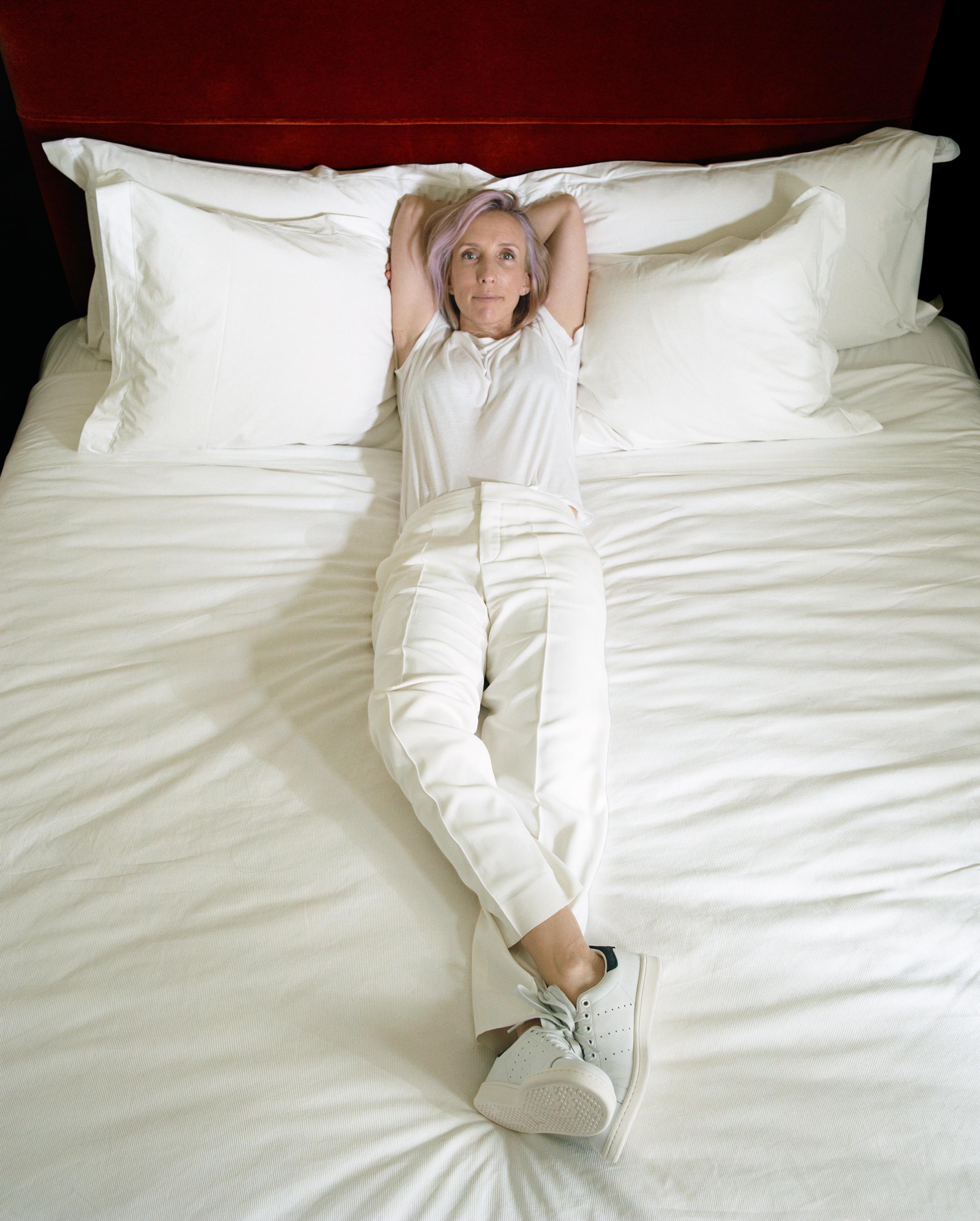Eloise Mumford is having a great Valentine’s Day weekend. She plays the best friend and roommate, Kate, of Anastasia Steele in Fifty Shades of Grey, which has already become the fastest-selling R-rated movie in the history of Fandango.
Even as the film, which features a BDSM relationship, continues to stir controversy, Mumford maintains that on set, it was all about female empowerment. Mumford talked to TIME about that shocking ending, the debate over the unhealthy relationship between Anastasia and Christian Grey, and feminism.
TIME: What were your initial impressions of the character of Kate when you first read the books?
Eloise Mumford: I immediately felt akin to her. There were a lot of things about her that I could really relate to. I love that she’s such a good friend and that she’s so inquisitive. She’s a much bigger partier than I am, though. My best friend just saw the movie last night, and she called afterward and was like, “I laughed so hard.” The part when she’s at the bar and calling for shots—that’s not me at all.
What do you think her views of Christian are?
In the first movie, she doesn’t know everything, so I think she’s impressed by him. She’s happy to see Ana so in love. But she’s also very wary of him. He gives Ana all these presents and a car, and he’s seducing her in a big romance way. I think Kate is protective of Ana and doesn’t want her to get hurt. She sees how quickly everything is moving and just wants to make sure it’s going at Ana’s pace. But obviously, he’s incredibly handsome and charming, so she recognizes that as well.
What would you do if some guy your friend had just met gave her a car?
We all dream of a fairy tale, so in that respect, it’s exhilarating. But I also think I’d be very suspicious of his intentions, just like Kate is. But then Kate falls in love with his brother and gets to have her own little love story, so her mind is taken off it a little bit. But you get protective of your best friends, and if somebody were to ever hurt them, you know, you would throw down.
Ana and Christian meet because Kate gets sick and asks Ana to interview Christian for her. What did you think of Kate as a journalist? I’m not sure I think her strategy of sneaking the question “Are you gay?” into her notes for Ana was a good one.
[laughs] I think she has a long way to go. She is a journalism student. I think shock value was her main tactic. But she’s incredibly inquisitive and won’t take no for an answer. In an alternative universe where she would have gone in and done the questioning, I think she would have really put him on the spot. It would have been a much more confrontational interview. But I think that’s what’s so fun about her: she’s so bullish and hasn’t quite figured out how to take no for an answer. And that’s totally how it is when you’ve just graduated from college.
Obviously, the movie is already a massive hit. What do you think of the reviews so far?
I went to the fan screening in New York, and everyone seemed to love it. This movie has always kept the fans in mind, and to have the fans be so happy with the way it turned out was really great. I try not to read reviews because a long time ago, someone said if you believe the good ones, you have to believe the bad ones. But I think the ticket sales are speaking for themselves. And people are tweeting me that they’ve already seen it a couple times already, which is amazing.
There’s been a lot of discussion about whether the movie is empowering for women or whether it’s romanticizing domestic violence. Where do you land in that conversation?
I think it’s a really important debate. What’s always interested me about art in general is its ability to instigate conversations and raise issues we wouldn’t necessarily be talking about. I think the reason why this book connected with so many women across the world is that women want to be talking about their sexuality and their fantasies, and it’s been a taboo topic for a long time.
Obviously, no one goes into a film thinking it’s a manual for how you should live your life. That’s not the point of films. The entertainment aspect of this film—telling the love story—that’s the primary goal. But I do think it’s good that people are starting to talk about other lifestyles that have been kept in the shadows for a long time. It’s a reality of our culture that people experience love and relationships in tons of different ways. I think it’s important to get people thinking about something they otherwise wouldn’t have been thinking about.
The director Sam Taylor-Johnson has been very outspoken about making sure the women in this film had agency and weren’t marginalized in any way. Did she communicate that on set, and what’s your view on the gender dynamics of the movie?
Sam herself is a very empowered and exemplary woman, so just having that energy on set was helpful. Kate, my character, is incredibly strong, so there wasn’t really a conversation with me about making sure she is her own person because that’s kind of inherently who she is. But I think there was always an attitude on set that this movie is about women, it’s for women, and there were a lot of very strong women making the movie. Like, Donna Langley is the head of Universal, and she’s the only female head of a studio right now. That in itself is incredible — that she constructed a whole team of women to work on this film.
The movie came from the point of view of empowering women, I think. That was really important to me personally. I have always considered myself a huge feminist, so I would never have signed on to something that I didn’t think women were being empowered. The reality is that power dynamics of relationships are complicated, and the movie deals with that complexity.
At the screening I was in, people freaked out after they saw the end of the film. When you first saw the movie, what was your reaction?
I was surprised as well. I thought it was incredibly powerful. I thought Dakota’s emotion in the final scene was so vivid. Her eyes especially. The book ends in a cliffhanger too, so nothing was ever going to get wrapped up. But it really does leave you with such a punch in the gut.
Fifty Shades of Grey: TIME's Exclusive Portraits of the Cast and Director



More Must-Reads from TIME
- Cybersecurity Experts Are Sounding the Alarm on DOGE
- Meet the 2025 Women of the Year
- The Harsh Truth About Disability Inclusion
- Why Do More Young Adults Have Cancer?
- Colman Domingo Leads With Radical Love
- How to Get Better at Doing Things Alone
- Michelle Zauner Stares Down the Darkness
Write to Eliana Dockterman at eliana.dockterman@time.com